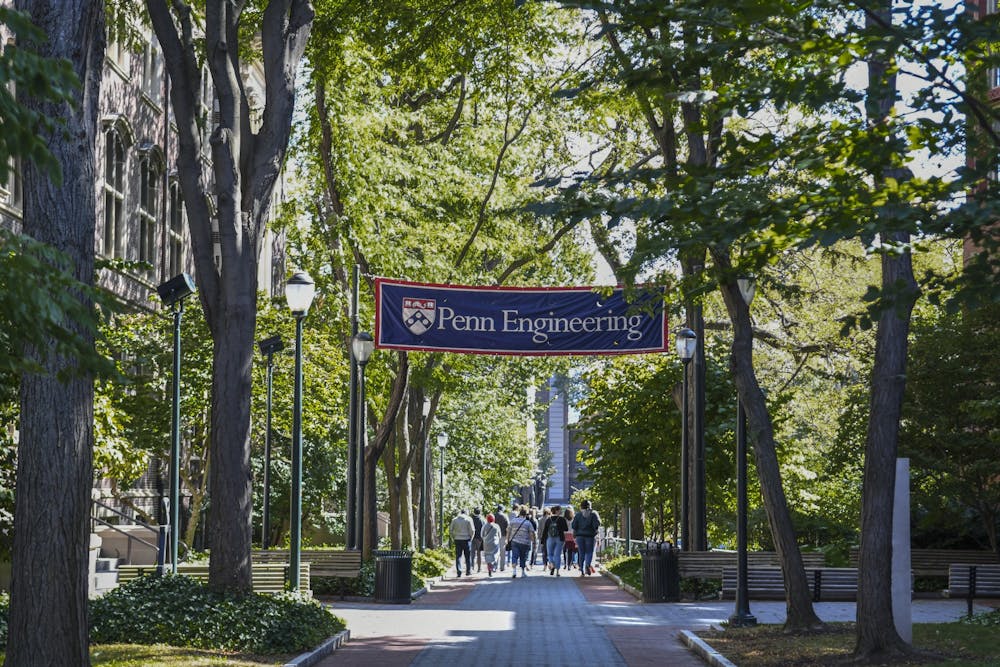Penn's School of Engineering and Applied Science emphasizes a hands-on approach to education. When Penn moved all of its classes to online formats in mid-March, Engineering lab and lecture courses began facing dramatic changes.
As labs became prerecorded videos and lectures were viewed asynchronously or through live Zoom meetings, many students said the shifted course formats made classes less stressful, but also less engaging.
Rising Engineering sophomore Caleigh Dennis said her PHYS 151 Principles of Physics II: Electromagnetism and Radiation lab became far less time-intensive when it was moved online in the spring semester.
Dennis said the lab was performed by the class teaching assistants, who recorded their work and sent it to students to analyze in written lab reports. As opposed to the normal two-hour, hands-on lab experience students would have had on campus, students could view the recorded labs at any time and as many times, she said.
“Even though it sucked not being able to do [labs] in person, the way that it changed meant that it was a lot less stressful,” rising Engineering sophomore Miranda Stern said.
Stern said her MEAM 101 Introduction to Mechanical Design course included projects using design software applications such as SolidWorks, a modeling program, and stationary equipment at Penn. She said her professor had to redesign many course projects after classes shifted online so students could complete them without access to SolidWorks at home.
“We weren't on campus. We were home," she said. "We couldn't do the hands-on parts of engineering. And there's not really much you can do about that in a global pandemic, unfortunately.”
Rising Engineering sophomore Grace Qian said though she appreciated the ability to watch pre-recorded lectures and labs at her own pace, she found them less stimulating and missed her in-person classes.
RELATED:
Penn outlines four possible scenarios for fall 2020, will finalize plan by end of June
From the studio to a virtual exhibition: Fine Arts majors adjust to online education
Dennis agreed, and said she found the lack of connection with her peers difficult.
“It's harder to work together when you're not [physically] together,” Dennis said. “And even though we have all the advancements in technology and video chatting and everything, it's just not the same.”
Dennis and Stern both said they connected with other students in their course's lab sections by meeting virtually over Zoom and FaceTime.
For Qian, professors' increased office hours helped make the transition to online classes much easier. Qian said contacting her professors online was much easier than meeting professors all around campus for in-person office hours and hopes online office hours continue even when classes resume on campus.
As Penn prepares an impending decision regarding the format of the fall semester, Dennis said she thinks a hybrid model, with larger lectures being recorded and smaller classes and labs meeting in person, would fit the University's engineering education well.
Stern, who plans to major in Mechanical Engineering, said an online engineering education will prove especially difficult for students in the Mechanical Engineering program.
“I don't really have a toolshed area to mess around,” she said. “And so that would probably be a challenge because some students might have that or other technological capabilities.”
Correction: A previous version of this article incorrectly stated that Stern worries the quality of the engineering education will lessen if classes remain online. In fact, she has full confidence in the quality of the school’s education. The DP regrets this error.









